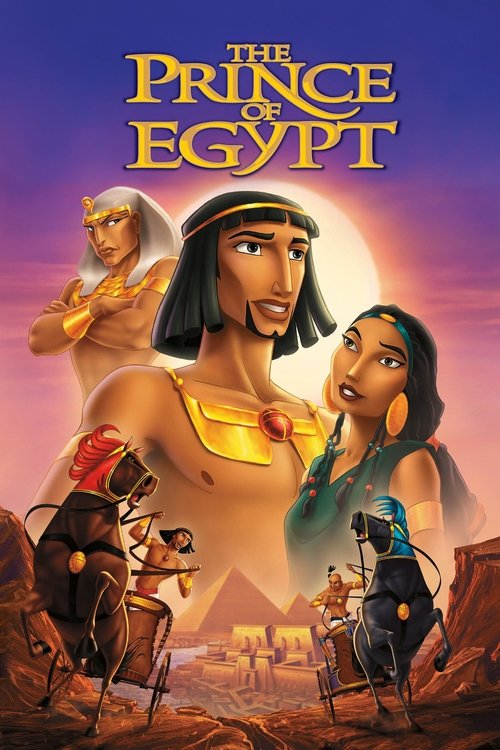
Title: The Prince of Egypt
Year: 1998
Director: Simon Wells
Writer: Nicholas Meyer
Cast: Val Kilmer (Moses (voice)),
Ralph Fiennes (Rameses (voice)),
Michelle Pfeiffer (Tzipporah (voice)),
Sandra Bullock (Miriam (voice)),
Jeff Goldblum (Aaron (voice)),
Runtime: 99 min.
Synopsis: The strong bond between two brothers is challenged when their chosen responsibilities set them at odds, with extraordinary consequences.
Rating: 7.3/10
Echoes of Exodus: The Prince of Egypt’s Resonant Tapestry
/10
Posted on July 31, 2025
DreamWorks’ The Prince of Egypt (1998) is a cinematic mosaic that weaves ancient narrative with modern artistry, achieving a rare balance of reverence and ambition. Directed by Brenda Chapman, Steve Hickner, and Simon Wells, the film reimagines the biblical Exodus with a visual and emotional depth that transcends its animated medium. Its most striking element is Hans Zimmer’s score, a soaring, soul-stirring force that elevates the storytelling to operatic heights. From the haunting choral strains of “Deliver Us” to the triumphant crescendos of “When You Believe,” Zimmer’s music doesn’t merely accompany the narrative it becomes its heartbeat, grounding the epic in raw human longing. The score’s integration with the animation, particularly in the burning bush sequence, creates a near-mystical synergy, where sound and image fuse to evoke divine awe without preachiness.
The screenplay, penned by Philip LaZebnik and Nicholas Meyer, navigates the Moses-Ramses relationship with nuanced psychological insight. Rather than casting Ramses as a mere villain, the film portrays him as a brother torn by duty and pride, his bond with Moses fraying under the weight of destiny. Val Kilmer’s Moses and Ralph Fiennes’ Ramses deliver vocal performances that brim with vulnerability and gravitas, though the former occasionally lacks the raw edge of a man wrestling with divine purpose. The supporting cast Sandra Bullock’s fiery Miriam and Jeff Goldblum’s understated Aaron adds layers of familial tension, though some secondary characters feel underdeveloped, their arcs sacrificed for pacing.
Visually, the film is a triumph of pre-CGI ambition. The parting of the Red Sea remains a technical marvel, its towering waves rendered with a painterly intensity that rivals live-action epics. Yet, the film’s aesthetic occasionally leans too heavily on its grandeur, with quieter moments like Moses’ desert wanderings lacking the same meticulous detail. The directors’ choice to blend stylized 2D animation with innovative 3D effects creates a timeless quality, though some transitions feel jarring, as if the technology hasn’t fully caught up with the vision.
The film’s greatest strength is its refusal to shy away from the story’s moral complexity. It grapples with faith, freedom, and sacrifice without easy answers, making it as much a meditation on human struggle as a retelling of scripture. However, its runtime, at 99 minutes, can feel rushed, particularly in the plagues sequence, which sacrifices narrative depth for spectacle. Still, The Prince of Egypt endures as a bold testament to animation’s power to explore profound themes with both heart and artistry.
0
0
